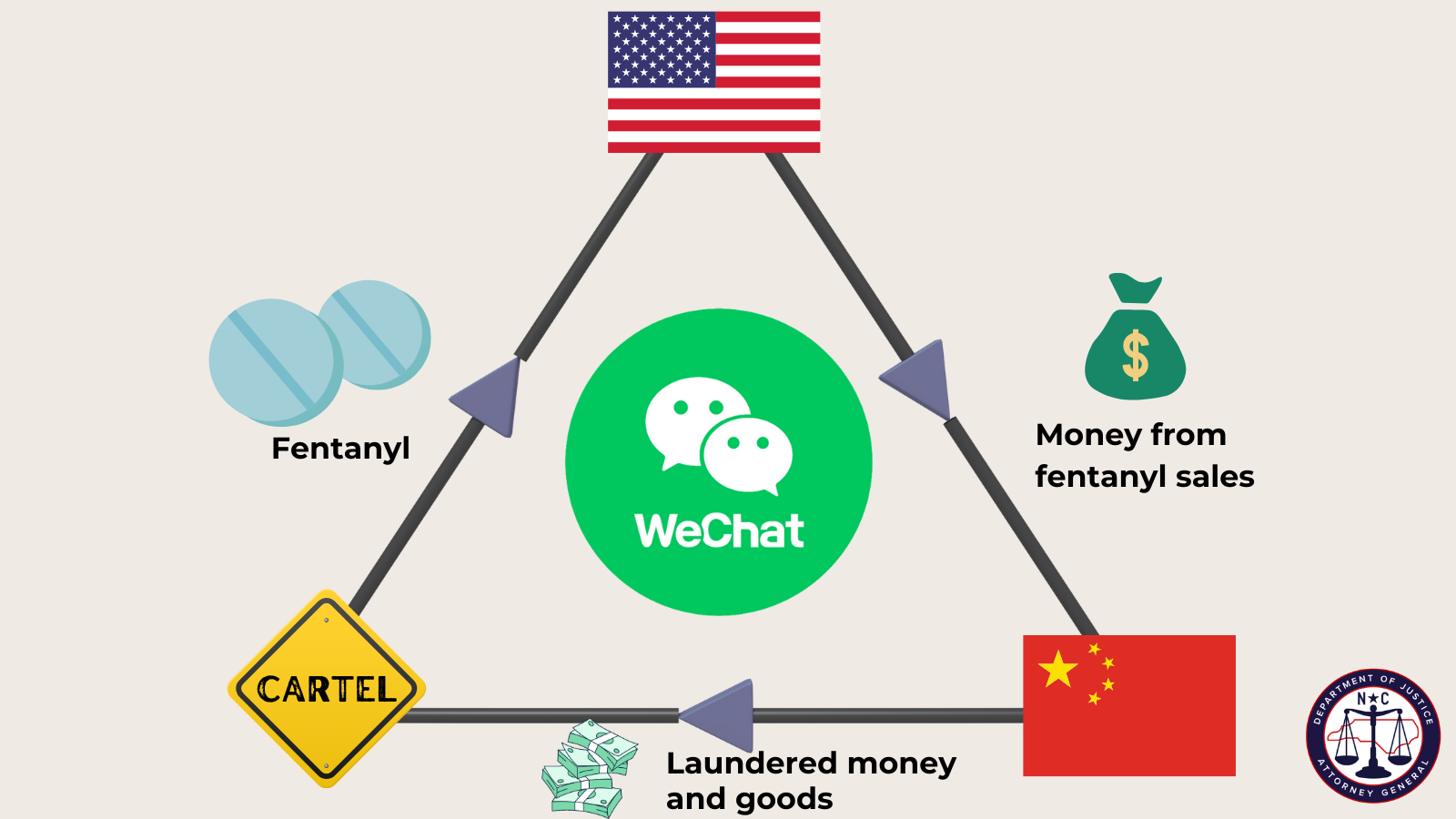
For Immediate Release:
Monday, May 12, 2025
Contact: Ben Conroy
(984) 383-9038
RALEIGH – Today, North Carolina Attorney General Jeff Jackson announced that he is leading a bipartisan, multistate coalition of attorneys general targeting the Chinese-owned messaging and payment platform WeChat over its connection to money laundering and fentanyl trafficking in the United States.
Fentanyl has contributed to hundreds of thousands of deaths in the United States. Fentanyl continues to have devastating effects across North Carolina, causing approximately six overdose deaths every day and making overdoses the leading cause of death for people under age 45 in the state.
“Criminal organizations are actively using WeChat to move and conceal profits from fentanyl trafficking,” said Attorney General Jeff Jackson. “This criminal activity directly endangers lives in North Carolina and across the country. We need clear answers from WeChat within the next 30 days about what specific actions they are taking to put a stop to the rampant money laundering that is occurring via their platform every day.”
WeChat is one of the largest messaging platforms in the world, with over one billion users globally, including millions in the United States and thousands across North Carolina. The platform’s encrypted messaging and integrated payment features have created an environment that law enforcement officials say facilitates significant financial crimes, particularly money laundering linked to fentanyl trafficking. Investigations by law enforcement and financial crime agencies have found that fentanyl traffickers frequently use WeChat to discuss and coordinate the laundering of drug profits. The encrypted nature of WeChat allows traffickers to coordinate to discreetly move millions of dollars from the United States to China, and ultimately back to Mexico, where the majority of fentanyl is produced.
In North Carolina and in the United States, it’s illegal to knowingly facilitate money laundering. The Attorneys General are demanding that WeChat provide specific answers in the next 30 days about what steps they’re taking to stop this dangerous and unlawful activity from taking place on their platform.
Several recent investigations and criminal cases have identified WeChat as a significant facilitator in fentanyl-related money laundering:
- The 2021 conviction of Xizhi Li, who managed an international criminal network using WeChat to coordinate bulk cash transfers between Chinese banks and drug cartels.
- Operation Chem Capture (2023), in which eight companies and 12 individuals were indicted for trafficking fentanyl precursor chemicals, with transactions coordinated through WeChat.
- Collaboration between Mexico’s Sinaloa cartel and Chinese laundering networks, which regularly use WeChat to facilitate cash pickups, currency swaps, and repatriation of drug proceeds.
- A recent 2024 federal indictment in South Carolina, charging three defendants with using WeChat to communicate in order to launder proceeds from fentanyl sales as part of an international conspiracy.
Despite clear evidence of misuse, WeChat has yet to adequately address the exploitation of its platform by criminal actors.
Attorney General Jackson led this letter to WeChat and was joined by the Attorneys General of South Carolina, Mississippi, New Jersey, New Hampshire, and Colorado.
A copy of the letter is available here.
###
